Breaking The Silence Through the Imarisha Mwanamke, Afya na Raslimali (IMARA) Project.
In the culturally rich Narok County, where traditions shape daily life and influence critical decisions, a powerful movement is rewriting the narrative on Female Genital Mutilation (FGM). The IMARA Project (Imarisha Mwanamke Afya na Raslimali)—a project implemented by ADS SR with support from We World Foundation—is leading the change, bringing men to the center of the fight against FGM through a culturally grounded, community-driven approach.
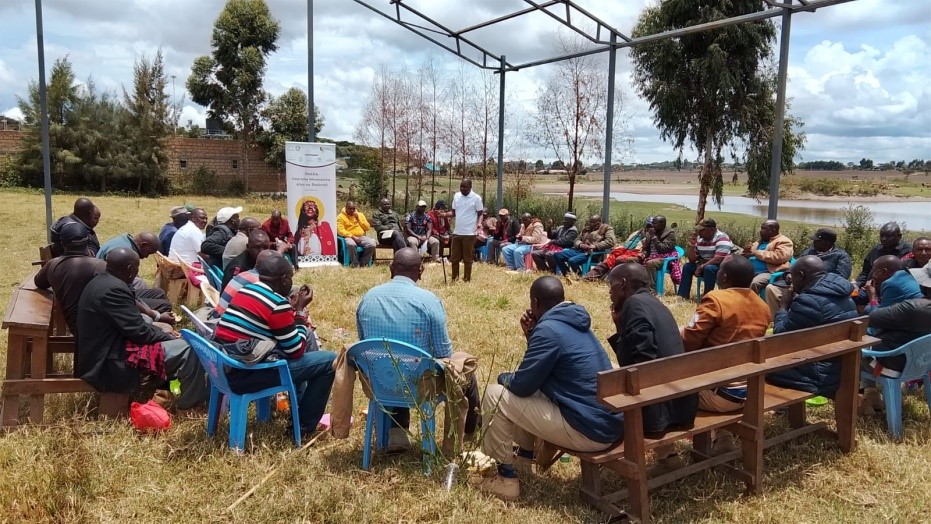
While Kenya has made progress in reducing FGM, Narok Central, Narok East and Narok North still lag behind due to deep-rooted traditions, limited awareness, and weak enforcement of anti-FGM laws. Recognizing that men hold influential roles in decision-making within the Maasai community, IMARA introduced Male Engagement Forums to challenge harmful norms and empower men as protectors of girls’ and women’s rights.
Historically, mobilizing men for such forums has proven difficult—men are less likely to attend social awareness meetings compared to women. To overcome this barrier, the IMARA Project adopted a culturally sensitive and innovative approach: slaughtering a goat and sharing a communal meal during each session. This traditional gesture of hospitality resonated deeply with the men and provided a relaxed, familiar setting for engagement. Alongside the shared meal, refreshments were provided, helping create a welcoming and respectful space that honored their time and presence.
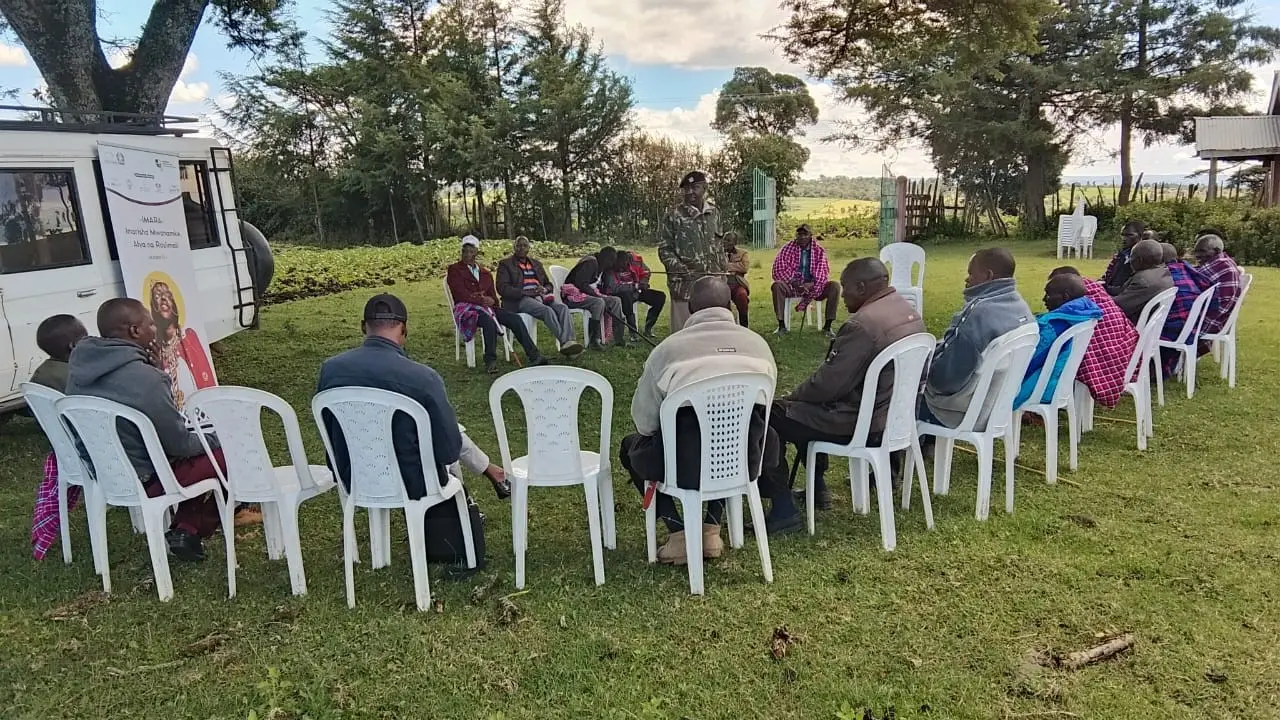
This simple but powerful strategy yielded remarkable results. Between January and March 2025, the forums successfully brought together over 400 men from diverse backgrounds—elders, religious leaders, teachers, youth, boda boda riders, and others—across 10 FGM hotspot areas in Narok East, Narok Central, and Narok North.
In Maasai culture, it is highly unlikely to bring men together in a forum and have a woman address them. To respect this cultural norm, the project engaged mature male Officers from the Narok Sub-County Reproductive Health and Gender Departments to lead the discussions during the forums. Each session opened with emotional survivor testimonies and statistics on FGM’s devastating effects, ranging from severe childbirth complications to lifelong trauma. The forums also explored the Prohibition of FGM Act (2011), clarifying that anyone who performs, promotes, or assists in FGM is subject to legal action.
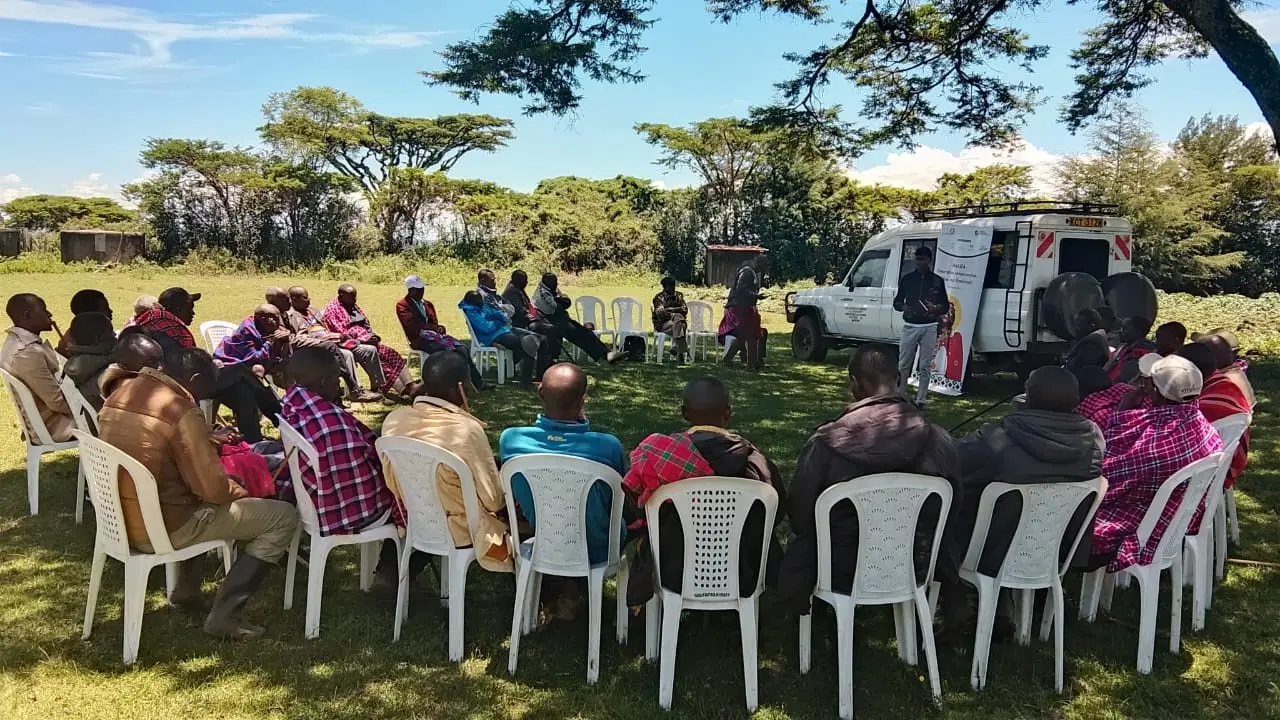
In Narok Central, many participants expressed shock upon learning about the legal consequences of FGM, acknowledging that they had previously assumed enforcement was weak in rural areas. Discussions revealed that in many families, fathers were often sidelined in FGM decisions, leaving mothers and grandmothers to uphold the practice. The sessions helped shift this mindset, with men pledging to take more active roles in safeguarding their daughters.
In Narok North, the conversation highlighted enforcement gaps. While many were aware that FGM is illegal, fear of community backlash and unclear reporting channels prevented effective action. Chiefs and opinion leaders emphasized the importance of building trust in whistleblower systems and strengthening cooperation with law enforcement.
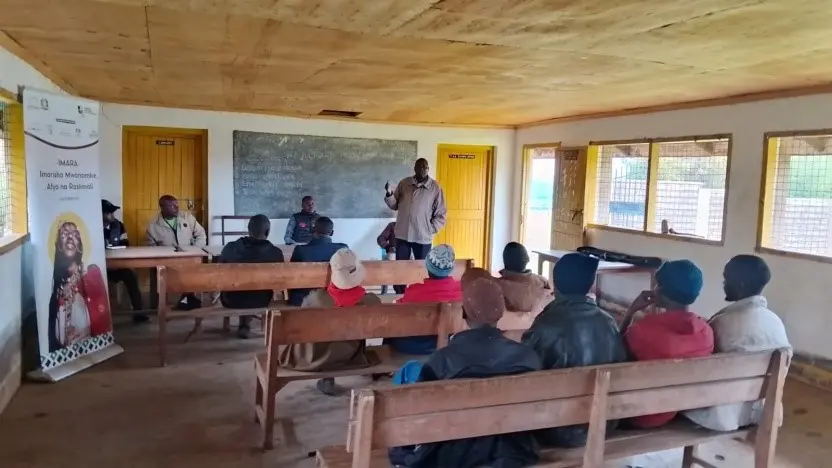
Beyond raising awareness, the forums produced concrete outcomes: (1) Creation of male-led anti-FGM networks to sustain community-driven change. (2) Calls for more youth engagement, especially involving morans (young men), who shape future cultural attitudes. (3) Proposals for village-based task forces to report FGM anonymously and safely. (4) Discussions on Alternative Rites of Passage (ARPs) that honor Maasai traditions without harming girls. (5) Religious leaders demystifying myths that link FGM to faith, helping break long-held misconceptions
Participants recognized that FGM is not just a women’s issue. Many admitted they had remained silent for too long. These sessions gave them the tools, space, and courage to speak up and act.
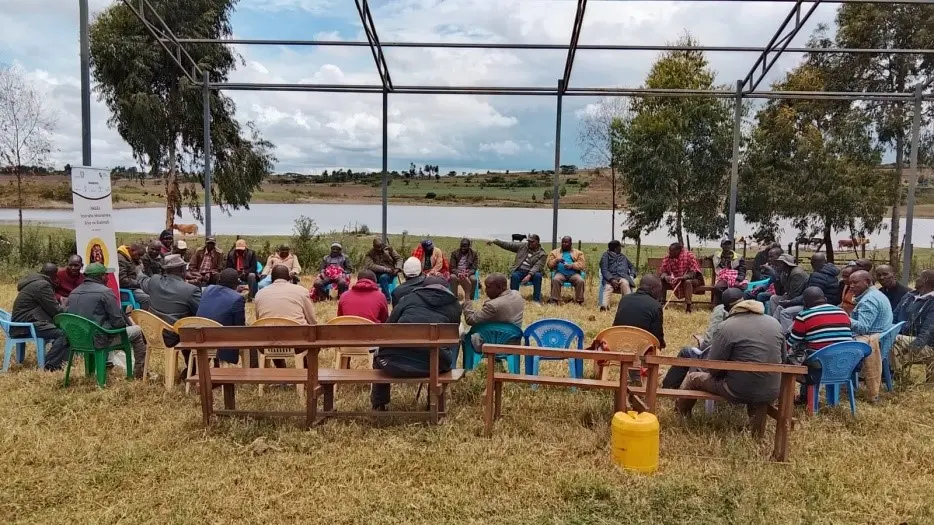
Challenges persist—cultural resistance, secret FGM practices, and low youth involvement remain real threats. But the male forums have proven that when men are genuinely engaged using culturally resonant methods, they can become powerful agents of change.
The IMARA Project plans to scale up this model, reaching more villages, empowering more men, and building stronger enforcement collaborations. With continued dialogue, partnerships, and locally accepted approaches like the shared meal tradition, Narok Central and Narok North have a real chance to eliminate FGM.
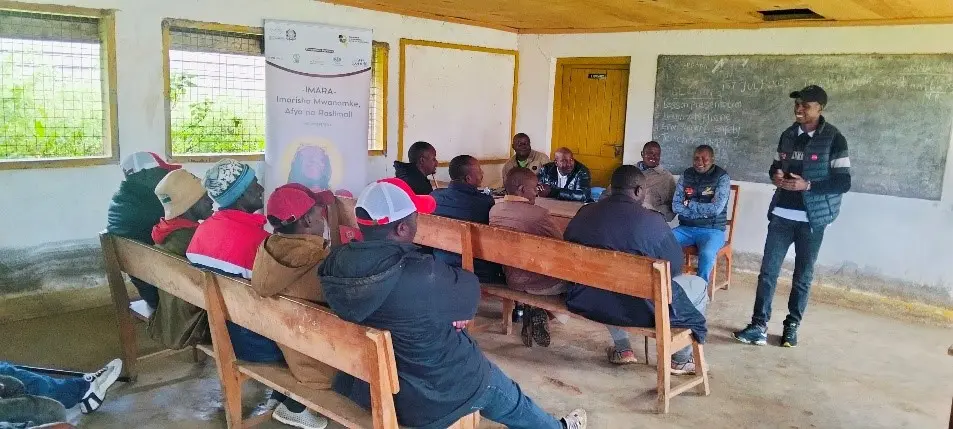
The IMARA Project’s male engagement strategy is a testament to the power of innovation, respect for culture, and inclusive dialogue. By turning shared meals into moments of reflection, and traditional gatherings into platforms for change, men are no longer bystanders—they are becoming champions for the safety and dignity of women and girls.
In the fight to end FGM, it turns out that sometimes, change starts over a shared plate and a courageous conversation.



